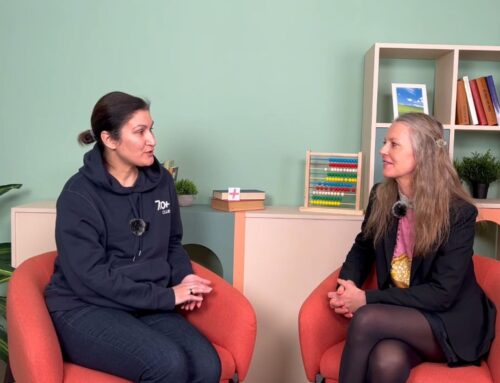Lots of colleges ask for SAT or ACT test scores as part of the admissions process. But here’s the deal: How do you know which standardized test to tackle? Well, each test has its own vibe—subjects, format, and scoring. But they’re both about showing off your skills in reading, writing, and math on test day.
This guide breaks down the basics of each test, spills the tea on SAT vs. ACT, and throws in some handy tips to help you crush it. Let’s get started!
SAT vs ACT test for college admissions
When it comes to SAT vs. ACT, most colleges are all about it. They usually want you to tackle one of these tests and hit some minimum scores to boost your application. But get this: every school does things a little differently, so those test scores might carry more weight in some places than others.
Now, what do these scores really mean? Well, they’re like your golden ticket to college, showing how ready you are to tackle those classes and maybe even scoring you some scholarships along the way.
What do they have in common?
So, what’s the scoop on the similarities between the SAT and ACT? Well, they’re kind of like two peas in a pod! Colleges usually give them both a thumbs up for admissions and even for handing out those sweet scholarship awards.
Plus, they both cover similar stuff: reading, writing, and math. And when it comes to the reading and writing sections, you’re diving into passages on both tests. It’s all about showing off your skills and getting those college-ready vibes.
Here’s a little secret: neither test is going to take points for wrong or blank answers. You only score points for the ones you get right.
SAT vs ACT: How do they differ?
Although the SAT and ACT have a lot in common, there are some key differences you should know about.
Check out these distinctions:
- Scoring scales and ranges: SAT scores range from 400 to 1600, while ACT composite scores range from 1 to 36.
- Test format and sections: The SAT includes reading, writing and language, math (with a calculator); and math (no calculator). The ACT includes English, math, reading, science, and writing (optional essay).
- Calculator rules: The SAT has a section where calculators aren’t allowed, but ACT test-takers can use a calculator for all math questions.
- Test length and number of questions: The SAT lasts three hours, while the ACT is two hours and 55 minutes without the essay section (or three hours and 35 minutes with the essay).
- Science section: The SAT doesn’t have a dedicated science section like the ACT.
- Math sections: Both tests cover arithmetic, algebra I and II, geometry, and trigonometry. However, the SAT also covers data analysis, while the ACT includes probability and statistics.
How is the SAT structured?
The SAT is split into three main parts: math, reading, and writing and language. Most of it is multiple choice, but watch out because there might be some math questions that require you to write out your answers!
Here’s a quick rundown of the time you’ll have for each section:
- Reading test: 65 minutes for 52 questions
- Writing and language test: 35 minutes for 44 questions
- Math test: 80 minutes for 58 questions
Calculator Policy:
When it comes to the math section, there are two parts: the math test (calculator) and the math test (no calculator). During the no-calculator section, you’ve got to keep that calculator tucked away. And hey, the SAT has some rules about what kind of calculator you can use, so make sure yours fits the bill by checking out their current policy.
Scoring Scale:
The highest score you can snag on the SAT is 1600. According to a report from the College Board in 2023, the average score is around 1028. And here’s the best part: you won’t lose points for wrong answers or leaving questions blank.
How is the ACT structured?
So, what’s the ACT all about? Well, it’s a standardized, pencil-and-paper test that colleges use to make big decisions about admissions. This test gives colleges a snapshot of how ready high schoolers are for college life.
Here’s what the ACT covers:
- English: This part tests your grammar and writing skills with 75 multiple-choice questions in 45 minutes.
- Math: Get ready for 60 math questions covering algebra, geometry, and more, all in 60 minutes.
- Reading: You’ll dive into 40 questions about reading closely and pulling information from different sources in just 35 minutes.
- Science: Yep, there’s a science section too! It’s got 40 questions in 35 minutes, covering everything from biology to physics.
Don’t forget about the optional essay section, where you’ve got 40 minutes to share your thoughts on a hot topic. This part is scored separately from the rest of the test.
Calculator Policy:
Good news—you can use a calculator for the whole math section! Just make sure it fits the ACT’s calculator rules.
Scoring:
Each section is scored from 1 to 36, and your total score is the average of those four. The highest score you can get is 36, but the average is around 19.5 as of 2023. And hey, no worries about losing points for wrong answers or guessing – there’s no penalty for that here!
On test day, should you take SAT or ACT?
If you’re all about having extra time to mull over questions, the SAT might be your jam. It gives you more time per question compared to the ACT, which moves at a quicker pace.
Now, when it comes to math, both tests cover similar topics, but the ACT digs a little deeper into the math pool. It throws in some trickier stuff like geometry, logarithms, matrices, and trigonometry. Plus, you can use a calculator for every math question on the ACT, while the SAT has a no-calculator section.
Feeling up for it? Consider taking both tests! Since they’re different in structure and content, you might shine brighter on one than the other.
Give practice tests a shot
Experts swear by practice tests. They’re like a sneak peek into how you’ll fare on the real deal. So, grab those practice tests, simulate the test conditions, and get a feel for how long you need for each section. CollegeBoard and ACT.org have got your back with free full-length practice tests to get you started!
Ace the SAT and get into your dream colleges
If you’re gearing up for taking the SAT, 700+Club has got your back with top-notch online SAT prep courses to make sure you score big on exam day. You can even get a taste of an SAT class for free.








